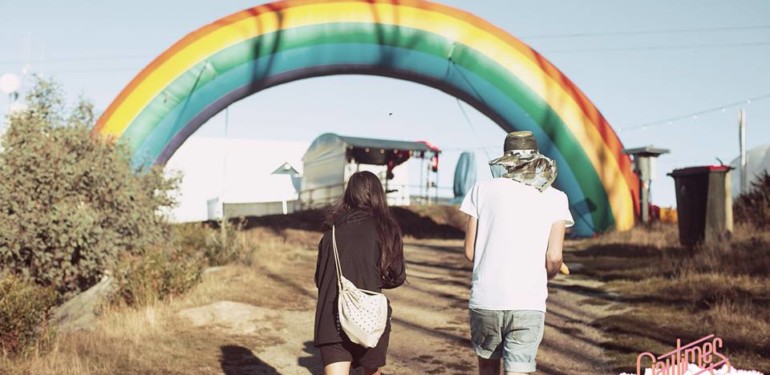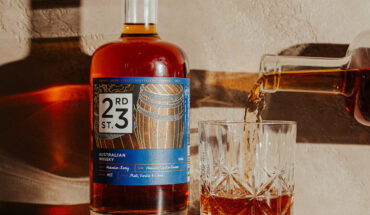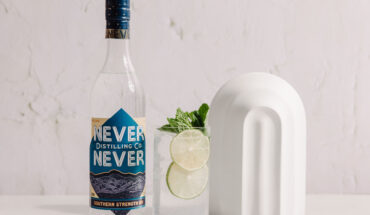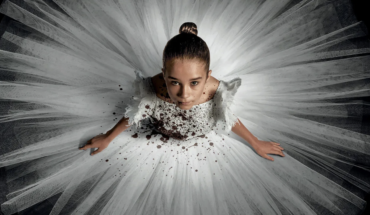Gaytimes is toted as the festival of your big gay dreams — a utopia of queer people dancing to music on top of a mountain, next to a giant inflatable rainbow.
Gaytimes aimed to be a beautiful community minded space, with art in the form of inflatable rainbows, unicorns and globes, tasty food trucks and kick-ass glamping for those lucky enough.
Gaytimes undeniably hosted one of the best artist lineups seen on a summer festival poster this year, with the drop out of JD Samson from the headline slot allowing the magnificent Harpoons to take to the stage. They were joined by the likes of Huntly, Two Steps on the Water, Ngaiire, Habits and Ali Barter. The music was the absolute high point of the weekend, one stage meaning there were (next to) no clashing sets, except for when the night split as the locker room transformed into a very claustrophobic ‘nightclub’.
Gaytimes fills a niche market. Other than Midsumma and club nights, there’s a shortage of events catered towards the queer community in Melbourne, and it’s something we’re desperately thirsty for. Little pockets of time and space where we can be unabashedly ourselves, away from a society that can be dangerous and violent towards queer people. A friend talked about how visible and vulnerable they felt as a straight person at the festival, almost wary of being identified, and I was quick to point out that that’s how most queer people feel in almost every other space.
I didn’t attend last years’ inaugural Gaytimes, but there was criticism voiced afterwards about a lack of focus on inclusivity and safety for minorities within the queer community. Some of this was taken on board, leading to un-gendered bathrooms, but all in all the festival’s target market wasn’t the whole queer community. Rather, it was aimed towards the often catered for cisgender gay men.
A number of performers took it upon themselves to change the name of the festival, addressing the crowd as ‘Queertimes’ to raucous cheers. Yes, we get that there’s no ice-cream gimmick available with the changed name, but considering there’s no visible Golden Gaytime sponsorship happening, it appears to be a rebrand that would be a step in the right direction.
As well as an amazing music lineup, the festival held other events. There was a little cupboard which hid a beautiful dance floor — a mini-nightclub covered in tin foil and fairy lights, called Narnia (definitely originating from a ‘queers going back INTO the closet joke). Granny Bingo, an infamous Drag Race with best dressed competition (shout out to the people who brought two full nun costumes in their luggage, I barely remembered a jumper), and speed dating were some of the side-events, each entertaining in their own right.
The most interesting was a short panel on queerness, with a group of queer artists and musicians, moderated by organiser Mason. There were many conflicting views on the panel, as to whether a ‘safe space’ is a pointless endeavour or avoiding tokenising in lineups.
There was a few times attention was drawn to the fact that the majority of speaking time was taken up by the white members of the panel, and honestly a lot of the most insightful thoughts came from the audience. One artist listed off the ways they had been racially profiled and targeted, by organisers and at the festival itself, and their feeling of tokenisation on the lineup. Others criticised one act’s Iggy Azalea-esque set, (hint: Iggy Azalea is not okay).
The panel, without a clear topic or direction, tried to cover queer history, ageism in the queer scene, racism, tokenism, and myriad other topics. It was an amazing panel with beautifully concise and experienced speakers, but Gaytimes’ opportunity to educate was not used efficiently.
Festivals are unruly and exciting, full of people coming together over a common love or community. They’re hard to tame and patrol, but with the help of protocol and a well-briefed security team, a safer space can be created.
The festival’s only statement on sexual assault was at the bottom of a Facebook post on another topic. I was personally grabbed/groped/assaulted close to a dozen times, and I know there are others that were subject to much worse. The silence on the topic of sexual assault was deafening, especially with a few Listen alumni on the line-up, including Whiskey Houston who as well as being a (freaking amazing) DJ, is also part of the taskforce on preventing sexual assault in music venues.
Gaytimes had amazing resources on sexual violence available to them prior to the event, but appear to have ignored the topic. It would’ve been great to have had visible safety officers, a technique utilised by a lot of venues/events.
The main consensus seems to be that most of the change in atmosphere from this year to last was orchestrated by a large amount of marginalised/non-cis queer folks banding together in numbers and visibility, elbowing their way in and creating a sub-community full of great people and artists.
All in all, Gaytimes was magical. I spent a weekend at the top of the mountain with some amazing friends, watching some of my favourite bands perform, covered in glitter and fairy lights and not much else. For the most part, I felt safe and comfortable, more so than at the standard cis-het event. The consensus seems to be that the queer community wants this event to succeed, but for that to happen, issues need to be addressed and resolved. A completely safe space may be an impossible task, but that doesn’t mean it’s not something that should be strived for.
– Jasmin
Jasmin Ashton is a queer nonbinary babe who really likes glitter and isn’t a fan of being grabbed at gigs. They volunteer for Listen and write a heap about music for The Plus Ones. Find them on twitter at @jasmanna
For more info, visit www.gaytimes.com.au.




